- Home
- Harlan Coben
The Final Detail mb-6 Page 13
The Final Detail mb-6 Read online
Page 13
Chapter 17
Myron did what every good boy should do when he gets into legal trouble: He called his mommy.
Your aunt Clara will handle the subpoena, Mom said.
Aunt Clara wasn't really his aunt, just an old friend from the neighborhood. On the High Holy Days she still pinched Myron's cheek and cried out, What apuniml Myron sort of hoped she wouldn't do that in front of the judge: Your Honor, I ask you to look at this face: Is that a punim or is that a puniml Okay, Myron said.
I'll call her, she'll call the DA. In the meantime you say nothing, understand?
Yes.
See now, Mr. Smarty Pants? See what I was telling you now? About Hester Crimstein being right?
Yeah, Mom, whatever.
Don't whatever me. They've subpoenaed you. But because Esperanza wouldn't tell you anything, you can't hurt her case.
I see that, Mom.
Good. Now let me go call Aunt Clara
She hung up. And Mr. Smarty Pants did likewise.
Bluntly put, Yankee Stadium was located in a cesspool section of the ever-eroding Bronx. It didn't much matter. Whenever you first caught sight of the famed sports edifice, you still fell into an immediate church hush. Couldn't help it. Memories swarmed in and burrowed down. Images flashed in and out. His youth. A small child crammed standing on the 4 train, holding Dad's seemingly giant hand, looking up into his gentle face, the pregame anticipation tingling through every part of him. Dad had caught a fly ball when Myron was five years old. He could still see it sometimes the arc of white rawhide, the crowd standing, his dad's arm stretching to an impossible height, the ball landing on the palm with a happy smack, the warm beam coming off Dad's face when he handed the prized possession to his son. Myron still had that ball, browning in the basement of his parents' house.
Basketball was Myron's sport of choice, and football was probably his favorite to watch on TV. Tennis was the game of princes, golf the game of kings. But baseball was magic. Early childhood memories are faint, but almost every boy can recall his first major-league baseball game. He can remember the score, who hit a home run, who pitched. But mostly he remembers his father. The smell of his after-shave is wrapped up in the smells of baseball the freshly cut grass, the summer air, the hot dogs, the stale popcorn, the spilled beer, the overoiled glove complete with baseball breaking in the pocket. He remembers the visiting team, the way Yaz tossed grounders to warm up Petrocelli at short, the way the hecklers made gentle fun of Frank Howard's TV commercials for Nestle's Quik, the way the game's greats rounded second and slid headfirst into third. You remember your sibling keeping stats, studying the lineups the way rabbinical scholars study the Talmud, baseball cards gripped in your hand, the ease and pace of a slow summer afternoon, Mom spending more time sunning herself than watching the action. You remember Dad buying you a pennant of the visiting team and later hanging it on your wall in a ceremony equal to the Celtics raising a banner in the old Boston Garden. You remember the way the players in the bullpen looked so relaxed, big wads of chew distorting their cheeks. You remember your healthy, respectful hate for the visiting team's superstars, the pure joy of going on Bat Day and treasuring that piece of wood as though it'd come straight from Honus Wagner's locker.
Show me a boy who didn't dream of being a big leaguer before age seven, before Training League or whatever slowly began to thin the herd in one of life's earliest lessons that the world can and will disappoint you. Show me a boy who doesn't remember wearing his Little League cap to school when the teachers would allow it, keeping it pitched high with a favorite baseball card tucked inside, wearing it to the dinner table, sleeping with it on the night table next to his bed. Show me a boy who doesn't remember playing catch with his father on the weekends or, better, on those precious summer nights when Dad would rush home from his job, shake off his work clothes, put on a T-shirt that was always a little too small, grab a mitt, and head into the backyard before the final rays faded away. Show me a boy who didn't stare in awe at how far his father could hit or throw a baseball no matter how bad an athlete his father was, no matter how spastic or what have you and for that shining moment Dad was transformed into a man of unimaginable ability and strength.
Only baseball had that magic.
The new majority owner of the New York Yankees was Sophie Mayor. She and her husband, Gary, had shocked the baseball world by buying the team from the longtime unpopular owner Vincent Riverton less than a year ago. Most fans had applauded. Vincent Riverton, a publishing mogul, had a love-hate relationship with the public (mostly hate) and the Mayors, a technonouveau-riche pair who had found their fortune through computer software, promised a more hands-off approach. Gary Mayor had grown up in the Bronx and promised a return to the days of the Mick and DiMaggio. The fans were thrilled.
But tragedy struck pretty fast. Two weeks before the deal to buy was finalized, Gary Mayor died of a sudden heart attack. Sophie Mayor, who had always been an equal, if not dominating, partner in the software business, insisted on going ahead with the transaction. She had public support and sympathy, but Gary and his roots had been the rope tethering her to the public. Sophie was a midwest-emer, and with her love of hunting mixed with her background as a math genius, she hit the prenatally suspicious New Yorkers as being something of a kook.
Soon after taking over the helm, Sophie made her son Jared, a man with virtually no baseball experience, co-general manager. The public frowned. She made a quick trade, gutting the Yankee farm system on the chance that Clu Haid still had a good year or two left. The public cried. She had stood firm. She wanted a World Series in the Bronx immediately. Trading for Clu Haid was the way to get it. The public was skeptical.
But Clu pitched amazingly well during his first month with the team. His fastball was back over ninety, and his curves were breaking as if they were accepting signals from a remote control. He got better with each outing, and the Yankees grabbed first place. The public was appeased. For a little while anyway, Myron guessed. He had stopped paying attention, but he could imagine the backlash against the Mayor family when Clu tested positive for drugs.
Myron was led immediately into Sophie Mayor's office. She and Jared both stood to greet him. Sophie Mayor was probably mid-fifties, what was commonly called a handsome woman, her hair gray and neat, her back straight, her handshake firm, her arms tawny, her eyes twinkling with hints of mischief and cunning. Jared was twenty-fiveish. He wore his hair parted on the right with no hint of style, wire-rimmed glasses, a blue blazer, and a polka dot bow tie. Youths for George Will.
The office was sparsely decorated, or maybe it just appeared that way because the scene was dominated by a moose head hanging on a wall. A dead moose actually. A live moose is so hard to hang. Quite the decorating touch. Myron tried not to make a face. He almost said, You must have hated this moose, a la Dudley Moore in Arthur but refrained. With age comes maturity.
Myron shook Jared's hand, then turned toward Sophie Mayor.
Sophie pounced. Where the hell have you been, Myron?
Excuse me?
She pointed to a chair. Sit.
Like he was a dog. But he obeyed. Jared too. Sophie stayed on her feet and glowered down at
him.
In court yesterday they said something about your being in the Caribbean, she continued.
Myron made a noncommittal uh-huh sound.
Where were you?
I was away.
Away?
Yes.
She looked over at her son, then back at Myron. For how long?
Three weeks.
But Miss Diaz told me you were in town.
Myron said nothing.
Sophie Mayor made two fists and leaned toward him. Why would she tell mfe that, Myron?
Because she didn't know where I was.
In other words, she lied to me.
Myron did not bother replying.
So where were you? she pressed.
Out of the country.
The Caribb
ean?
Yes.
And you never told anyone?
Myron shifted in his chair, trying to find an opening or gain some sort of footing here. I don't
mean to sound rude, he said, but I don't see how my whereabouts are any of your business.
You don't? A sharp chortle passed her lips. She looked at her son as if to say, Do you believe
this guy?, then redirected her laser grays back toward Myron. I relied on you, she said.
Myron said nothing.
I bought this team and I decided to be hands-off. I know software. I know computers. I know
business. I really don't know much about baseball. But I made one decision. I wanted Clu Haid. I had a feeling about him. I thought he still had something left. So I traded for him. People thought I was nuts three good prospects for one has-been. I understood that concern. So I went to you, Myron, remember?
Yes.
And you assured me he was going to stay clean.
Wrong, Myron said. I said he wanted to stay clean.
Wanted, was going to What is this, a lesson in semantics?
He was my client, Myron said. It's my job to worry about his interests.
And damn mine?
That's not what I said.
Damn integrity and ethics too? Is that the way you work, Myron?
That's not it at all. Sure, we wanted this trade to happen
You wanted it badly, she corrected him.
Fine, we wanted it badly. But I never promised you he'd stay clean because it's not something I
or anyone else can guarantee. I assured you we would try our hardest. I made it part of the deal. I gave you the right to randomly test him at any time.
You gave me the right? I demanded it! And you fought me on it every step of the way. We shared the risk, Myron said. I made his salary contingent on his staying clean. I let you put in a strict morals clause.
She smiled, crossed her arms. You know who you sound like? Those hypocritical car commercials where General Motors or Ford tout all the pollution-saving devices they've put on their cars. As though they did it on their own. As though they woke up one day more concerned with the environment than the bottom line. They leave out the fact that the government forced them to put on those devices, that they fought the government tooth and nail the whole way.
He was my client, Myron said again.
And you think that's an all-purpose excuse?
It's my job to get him the best deal.
Keep telling yourself that, Myron.
I can't stop a man from returning to an addiction. You knew that.
But you said you'd watch him. You said you'd work on keeping him straight.
Myron swallowed and shifted in his chair again. Yes.
But you didn't watch him, Myron, did you?
Silence.
You took a vacation and didn't tell anyone. You left Clu alone. You acted irresponsibly, and so
I blame you in part for his falling off the wagon. Myron opened his mouth, closed it. She was right, of course, but he didn't have the luxury of wallowing in that right now. Later. He'd think about his role in this later. The pain from last night's beating was angrily stirring from its snooze. He reached into his pocket and shook out a couple of extra-strength Tylenols. Satisfied or maybe satiated Sophie Mayor sat down. Seeing the pills, she asked, Would you like some water?
Please.
She nodded at Jared. Jared poured Myron a glass of water and handed it to him. Myron thanked
him and swallowed the tablets. The placebo effect jumped in, and he immediately felt better.
Before Sophie Mayor could strike again, Myron tried to shift gears. Tell me about Clu's failed
drug test, he said.
Sophie Mayor looked puzzled. What's to tell?
Clu claimed he was clean.
And you believe that?
I want to look into it
Why?
Because when Clu was caught in the past, he begged forgiveness and promised to get help. He
never pretended a test result was wrong.
She crossed her arms. And that's evidence of what exactly?
Nothing. I'd just like tq ask a few questions.
Ask away then.
How often did you test him?
Sophie looked over at her son. His cue. Jared spoke for the first time since greeting Myron at the
door. At least once a week, he said.
Urine tests? Myron asked.
Yes, Jared said.
And he passed them all? I mean, except for the last one.
Yes.
Myron shook his head. Every week? And no other positives? Just that one?
That's right.
He looked back at Sophie. Didn't you find that odd?
Why? she countered. He'd been trying to stay clean, and he fell off the wagon. It happens
every day, doesn't it?
It did, Myron guessed, and still something about it didn't sit right with him. But Clu knew you
were testing him?
I assume so, yes. We'd been testing him at least once a week.
And how were the tests conducted?
Sophie again looked over at Jared. Jared asked, What do you mean?
Step by step, Myron said. What did he do?
Sophie took that one. He peed in the cup, Myron. It's pretty simple.
It was never pretty simple. Did someone watch him urinate?
What?
Did someone actually witness Clu peeing or did he step into a stall? Myron said. Was he
naked when he did it or did he have on shorts
What difference does any of that make?
Plenty. Clu had spent his lifetime beating these tests. If he knew they were coming, he'd be prepared.
Prepared how? Sophie asked. Lots of ways, depending on the sophistication of the test, Myron said. If the testing was more primitive, you can put motor oil on your fingers and let the urine hit them while urinating. The phosphates throw the results out of whack. Some testers know this, so they check for phosphates. If the tester lets the guy urinate in a stall, he can strap clean urine onto his inner thigh and use that. Or the testee keeps the clean urine hidden in a condom or small balloon. He stores it in the lining of his boxer shorts maybe. Or between his toes. Under his armpit. In his mouth even.
Are you serious?
It gets worse. If the testee gets tipped off a strict test is coming up one where the
administrators are watching every move he makes he'll drain his bladder and use a catheter to
pump in clean urine.
Sophie Mayor looked horror-stricken. He pumps someone else's urine into his bladder?
Yes, Myron said.
Jesus. Then she pinned him down with her eyes. You seem to know quite a bit about this,
Myron.
So did Clu.
What are you saying?
It raises some questions, that's all.
He probably got caught by surprise.
Maybe, Myron said. But if you were testing him every week, how surprised could he have
been?
He might have just messed up, Sophie went on. Drug addicts have a way of doing that.
Could be. But I'd like to speak with the person who administered the test.
Dr. Stilwell, Jared said. He's the team doctor. He handled it. Sawyer Wells assisted him.
Sawyer Wells, as in the self-help guru?
He's a psychologist specializing in human behavior and an excellent motivational therapist,
Jared corrected.
Motivational therapist. Uh-huh. Are either of them around now?
No, I don't think so. But they'll be here later. We have a home game tonight.
Who on the team was especially friendly with Clu? A coach, a player?
I really wouldn't know, Jared said.
Who did he room with on the road?
Sophie almost smiled. You really were out of touch, weren't you?
Cabral, J
ared said. Enos Cabral. He's a Cuban pitcher.
Myron knew him. He nodded, glancing about, and that was when he saw it. His heart lurched,
and it took all his willpower not to scream.
He had just been sweeping the room with his eyes, taking the room in but not really seeing
anything, just the normal thing everyone does, when an object snagged his gaze as though on a
rusted hook. Myron froze. On the credenza. On the right side of the credenza, mixed in with the
other framed photos and the trophies and those latex cubes that encased civic awards and the first
issue of Mayor Software stock and the like. Right there. A framed photograph.
A framed photograph of the girl on the computer diskette.
Myron tried to maintain a calm facade. Deep breath in, deep breath out. But he could feel his
pulse quicken. His mind fought through the haze, searching for a temporary clearing. He scanned his internal memory banks. Okay, slow down. Breathe. Keep breathing.
No wonder the girl had looked familiar to him. But what was her deal? More memory bank scanning. She was Sophie Mayor's daughter, of course. Jared Mayor's sister. What was her name again? His recollections were vague. What had happened to her? A runaway, right? Ten, fifteen years ago. There had been an estrangement or something. Foul play was not suspected. Or was it? He didn't remember.
Myron?
He needed to think. Calmly. He needed space, time. He couldn't just blurt out, Oh, I got this
weird diskette with an image of your daughter melting in blood on it. He had to get out of here.
Do some research. Think it through. He stood, clumsily looking at his watch.
I have to go, he said.
What?
I'd like to speak with Dr. Stilwell as soon as possible, he said.
aSophie's eyes stayed on him. I don't see the relevance.
I just explained
What difference would it make? Clu is dead now. The drug test isn't relevant.
There might be a connection.
Between his death and a drug test?
Yes.
I'm not sure I agree.
I'd still like to check it out. I have that right.
What right?
If the drug test was inconclusive, it changes things.
Changes what Then Sophie stopped, smiled a bit, and nodded to herself. I think I see now.

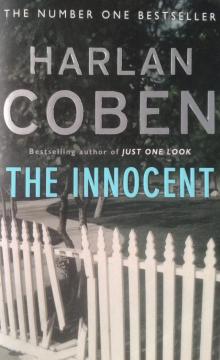 The Innocent
The Innocent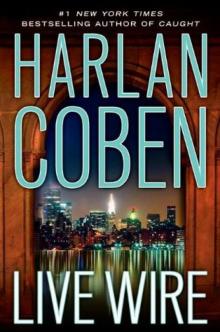 Live Wire
Live Wire Play Dead
Play Dead Drop Shot
Drop Shot Seconds Away
Seconds Away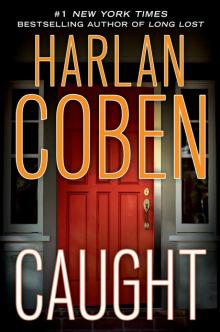 Caught
Caught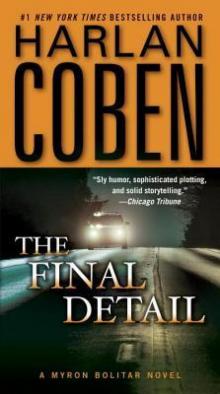 The Final Detail
The Final Detail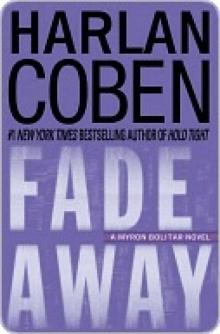 Fade Away
Fade Away Home
Home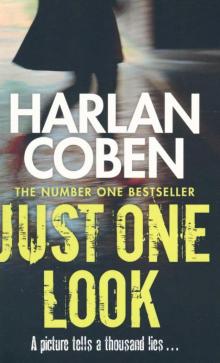 Just One Look
Just One Look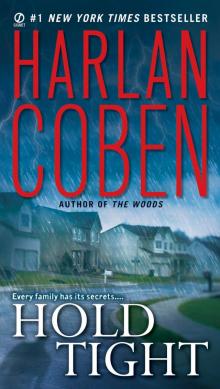 Hold Tight
Hold Tight Fool Me Once
Fool Me Once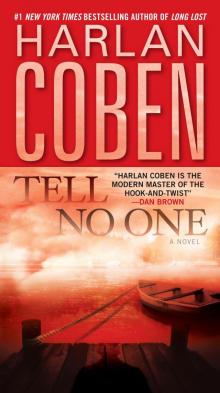 Tell No One
Tell No One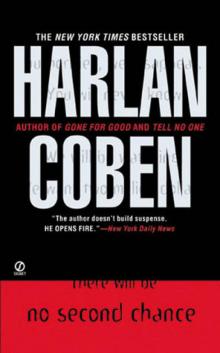 No Second Chance
No Second Chance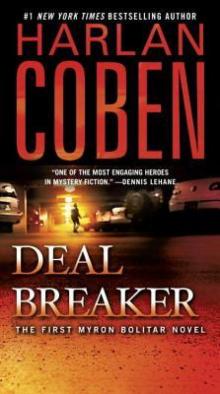 Deal Breaker
Deal Breaker Long Lost
Long Lost One False Move
One False Move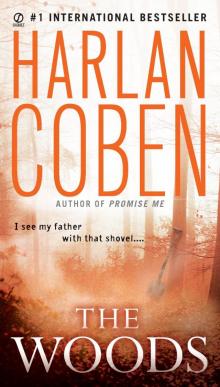 The Woods
The Woods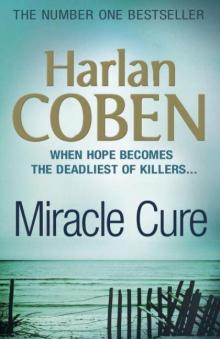 Miracle Cure
Miracle Cure Found
Found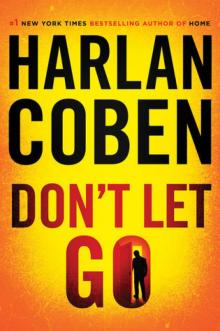 Don't Let Go
Don't Let Go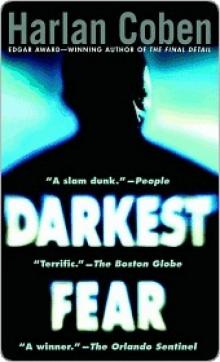 Darkest Fear
Darkest Fear The Stranger
The Stranger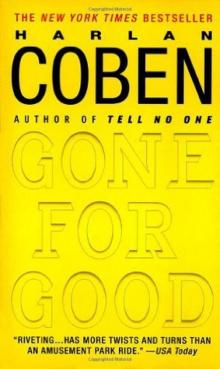 Gone for Good
Gone for Good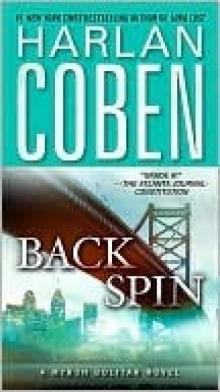 Back Spin
Back Spin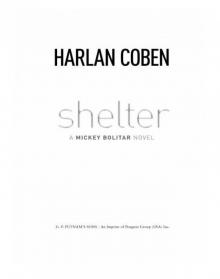 Shelter
Shelter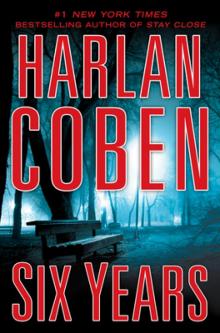 Six Years
Six Years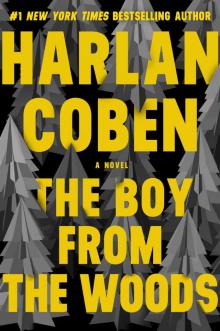 The Boy from the Woods
The Boy from the Woods Missing You
Missing You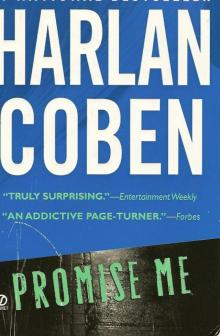 Promise Me mb-8
Promise Me mb-8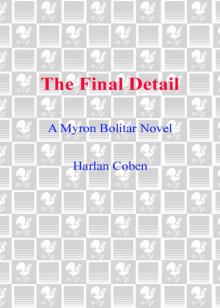 The Final Detail: A Myron Bolitar Novel
The Final Detail: A Myron Bolitar Novel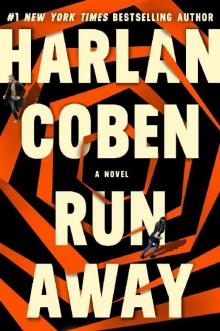 Run Away
Run Away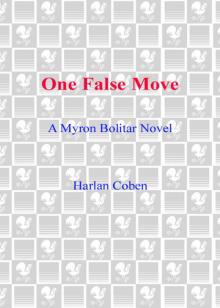 One False Move: A Myron Bolitar Novel
One False Move: A Myron Bolitar Novel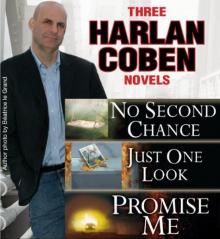 Three Harlan Coben Novels
Three Harlan Coben Novels the Woods (2007)
the Woods (2007) Tell No One (2001)
Tell No One (2001) the Innocent (2005)
the Innocent (2005)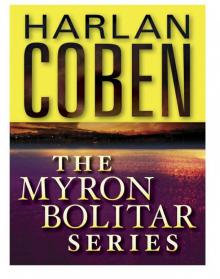 The Myron Bolitar Series 7-Book Bundle
The Myron Bolitar Series 7-Book Bundle Gone for Good (2002)
Gone for Good (2002) Caught (2010)
Caught (2010) Hold Tight (2008)
Hold Tight (2008)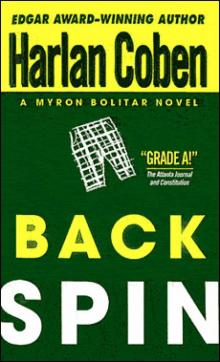 04 - Back Spin
04 - Back Spin Miracle Cure (1991)
Miracle Cure (1991) Harlan Coben 3 Novel Collection
Harlan Coben 3 Novel Collection Just One Look (2004)
Just One Look (2004)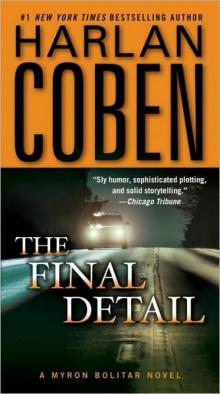 The Final Detail mb-6
The Final Detail mb-6 Play Dead (2010)
Play Dead (2010)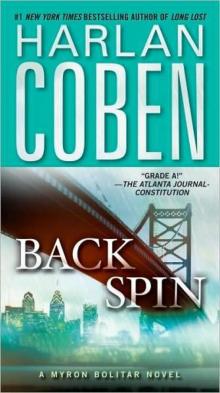 Back Spin mb-4
Back Spin mb-4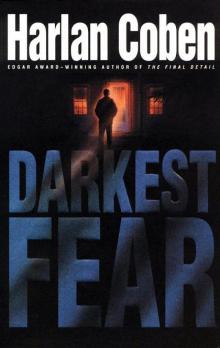 Darkest Fear mb-7
Darkest Fear mb-7